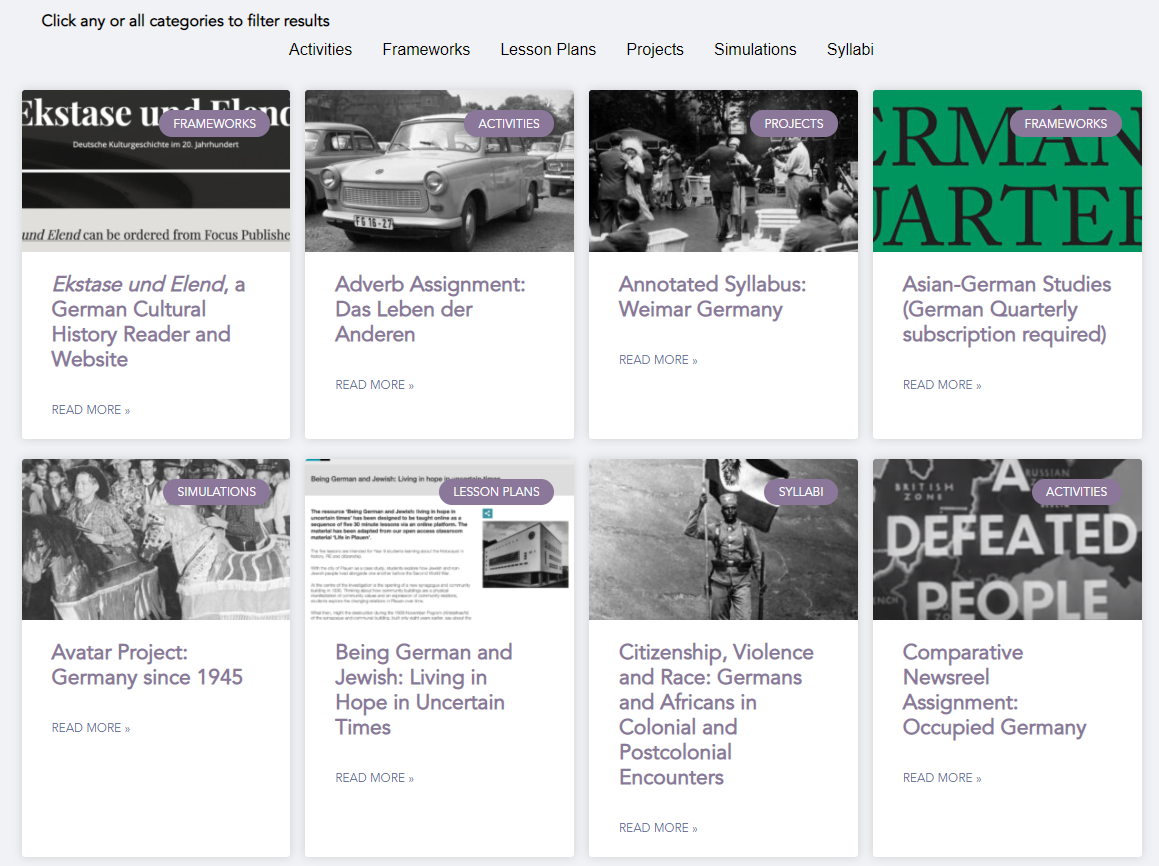In celebration of Open Education Week 2021, the Senate of College Councils and UT Libraries partnered to solicit nominations from students across campus to recognize instructors who increased access and equity by selecting free or low cost course materials for their classes. We’ll be recognizing a few of those nominees this week as Affordable Education Champions!
Affordable Education Champions are instructors who assign free or low cost resources — like textbooks, websites, films, and more — for their courses. Sometimes they author their own materials, and sometimes they’re able to reuse free or low cost work created by others. We share gratitude and appreciation for their commitment to fostering access to high quality education at the lowest possible cost barrier for their students.
Today, we congratulate and thank Dr. Kirkland (Alex) Fulk, who was nominated by his students in GER 331L (Advanced Conversation and Composition) in the Department of Germanic Studies. Dr. Fulk also teaches GER 346L (German Literature Between the Enlightenment and the Present) and GER 373 (Topics in German Literature), and he utilizes freely accessible resources in all classes.
Dr. Fulk joined the Department of Germanic Studies as a lecturer in 2013 and since 2014 is an Assistant Professor of post-war German literature. His work centers on the intersections between literature, culture, and theory and has also moved into other forms of media. He has published for instance on photography and new literary ethnographic practices; post-colonialism and neoliberalism; the transnational connections of pop musical cultures, practices, and public spheres; and post-‘68 reevaluations of Marxism, futurology, and other science fictions.
When asked what led him to select free resources as required course materials, Dr. Fulk told us “This particular course (GER 346L) focuses on 18th and 19th century German literature, culture, and history. Because of this, many of the primary texts are no longer under copyright restrictions and are available thanks to Projekt Gutenberg, a free online archive of literary works. However, even in my other courses that focus on the 20th and 21st centuries, there is a wealth of online material available. For instance, the German Historical Institute in Washington, D.C. curates an online archive full of historical documents, photos, etc., and more recently the German Studies Collaboratory provides a forum for sharing a wide range of open-source materials. Not to mention, of course, the library resources, particularly Kanopy, which has been a game changer for film viewings (and a shout out to Uri Kolodney for always helping me out with film acquisitions).”
Dr. Fulk’s students shared with us some of the ways in which his choice to assign free or low cost resources impacted them.
“In my time as one of his students, Dr. Fulk has gone above and beyond the call of a professor not only to ensure that our virtual class experience is engaging and accommodating but also that finances are never a barrier to educational resources. Over the span of three courses taken with him, I have spent a total of $4 on educational resources (in the form of movie rentals). When he wasn’t able to provide certain readings for our GER 346L course, he directed us towards free online resources and personally assisted me in acquiring one reading after I had received the syllabus late. Dr. Fulk truly strives for equity and inclusion for all students in his classroom and I have confidence, and anecdotal proof, that he spares no effort in ensuring his students’ success through cost-free access to educational materials.” — Victoria Ritter, Chemistry & German Major
Dr. Fulk generously offers three pieces of advice to other instructors interested in transitioning their courses to free and affordable materials:
- “Realize that students are in effect digital natives and that the internet is often the first place they go. This provides wonderful opportunities to engage with media literacies and to reinforce them through scholarly engagement with library resources.”
- “Be mindful of newer online initiatives such as those mentioned above that are often part of our professional organizations and aim to make teaching resources and materials widely available (most often for free).”
- “It goes without saying that tuition is becoming more expensive as is the cost of living in Austin. Being attentive to this and doing what we can to lighten the burden might not offset the financial hurdles in higher education, but it does demonstrate that education does not have to be tied to monetary resources. Teaching students how to properly use what’s already at their fingertips can go a long way to cultivating best practices for continuing their education beyond the classroom and beyond the university.”
Join us in thanking Dr. Fulk for his contribution to making UT an inclusive and equitable environment where students can succeed without high course materials costs!
If you know of an instructor who is dedicated to making their courses as affordable as possible by selecting free or low cost course materials, let us know by contacting Ashley Morrison, Tocker Open Education Librarian (ashley.morrison@austin.utexas.edu).



